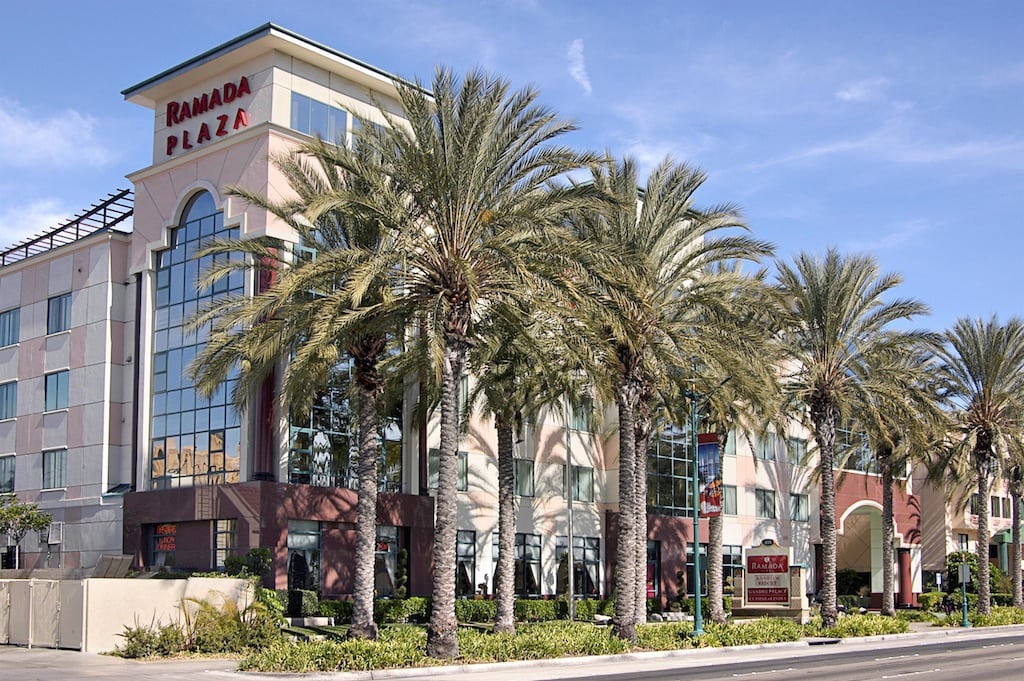Skift Take
While some hotel companies are worried about disruptive vacation rentals, Wyndham did $125 million in the sector in the fourth quarter. While vacation rental revenue was flat and rates were down, Wyndham has a big hedge against that disruption.
Wyndham Worldwide’s hotel system includes 7,340 properties with 627,400 rooms, and it was the healthiest — but smallest — part of the company’s business in the fourth quarter.
As large as its hotel business undoubtedly is, when you think Wyndham, don’t necessarily think “hotels.”
Despite Wyndham’s 17 hotel brands, ranging from its namesake Wyndham Hotels and Ramada to Travelodge, the largest component of Wyndham Worldwide’s business by far is Wyndham Vacation Ownership. And, over the last three years, it has become an even larger part of Wyndham’s overall business, accounting for more than half of revenue.
Pushed along by RevPar (revenue per available room) gains, Wyndham’s lodging business saw its adjusted EBITDA climb 51% in the fourth quarter to $62 million on $223 million in revenue, a 19% jump.
RevPar in the U.S. increased 6% in the fourth quarter compared with just 4% system-wide, Wyndham reported.
But, hotels only accounted for 20% of Wyndham’s $1.1 billion revenue in the fourth quarter.
Although they are performing fairly well, other parts of Wyndham’s business are dragging the overall company down.
Vacation ownership is heart of the business
Wyndham’s largest business segment is Wyndham Vacation Ownership. That business line produced $590 million in fourth quarter revenue — 53% of Wyndham’s total revenue — but it only notched a 6% revenue gain in the fourth quarter if you exclude the acquisition of Shell Vacation Club.
Thus, Wyndham Vacation Ownership is growing through acquisition, and not so much organically.
EBITDA for the vacation ownership business increased a tepid 4% to $144 million, and that excludes $2 million in restructuring costs. Higher general and administrative costs and licensing fees negatively impacted earnings despite higher revenue from vacation ownership sales and higher resort management fees.
Wyndham’s vacation exchange and vacation rental business was also larger than its hotel business in the fourth quarter.
Wyndham Exchange & Rentals produced $293 million in revenue in the fourth quarter of 2012, which was flat compared to the year-earlier period, and it accounted for nearly 26.5% of total revenue. It was thus larger than the 20% of revenue that Wyndham’s hotel business chipped in.
Wyndham’s exchange revenue was hurt by a decline in membership because an affiliation agreement in early 2012 was not renewed.
Fourth quarter EBITDA from Wyndham Exchange & Rentals increased 11% to $42 million, but that increase translated to just 3% when you exclude the beneficial effects of acquisitions and foreign currency fluctuations.
When thinking about Wyndham, don’t think hotels
Wyndham’s overall business in the fourth quarter saw net income rise 21.9% to $89 million, driven by revenue increases in lodging (19%) and vacation ownership (6%). Overall revenue increased 9% to $1.1 billion.
In sum, when you think of Wyndham, its hotel business seems to be doing the best among its three business segments.
But, the largest share of Wyndham’s business is overwhelmingly in vacation ownership, followed by vacation exchanges and vacation rentals, and these two business lines aren’t setting the world on fire.
Dwell Newsletter
Get breaking news, analysis and data from the week’s most important stories about short-term rentals, vacation rentals, housing, and real estate.
Have a confidential tip for Skift? Get in touch
Tags: earnings, vacation rentals, wyndham
Photo credit: Wyndham is known for its hotels, such as the Ramada Plaza Hotel Anaheim, but the bulk of the company's business is in vacation ownership, exchange and rentals. Wyndham
